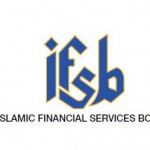
Fintech and Islamic Crowdfunding
Article Overview
The Islamic Financial Services Board (IFSB) in its annual Islamic financial services industry stability report highlighted developments in the Islamic Finance Fintech space, in particular the Sharī’ah compatibility and application to Islamic finance, financial inclusion and regulatory issues.
Many of the Sharīʻah questions raised in the following are not based on concrete cases but are abstract. Although Islamic jurists prefer to discuss issues only when they have become concrete cases, it should be useful to look somewhat ahead. Uncertainties about the Sharīʻah compliance of instruments or techniques that spread rapidly in conventional finance may become effective obstacles for a catching-up of Islamic finance in many areas where FinTech has been disrupting traditional practices and have driven conventional finance to higher efficiency and consumer satisfaction.
Islam-oriented Crowdfunding Platforms in OIC Member States
To identify relevant crowdfunding platforms with a focus on equity- and loan-based platforms located in the Muslim world, the database of Crowdsurfer was consulted. It lists in 32 of the 57 member states of the Organisation of Islamic Cooperation (OIC) a total of 108 crowdfunding platforms.
However, due to double counting of some platforms, the number of distinct crowdfunding platforms with a primary location in an OIC member state is only 80. Most of these are donation- or reward-based platforms. After some further corrections and adjustments, the Crowdsurfer database identifies 14 equity-based and 13 commercial loan-based crowdfunding platforms with an “active” status. From the profiles of the platforms in the Crowdsurfer database, one can sift out only four active “Islamic” crowdfunding platforms with a primary location in an OIC member state and one classified as “pre launch”.
Three of the active platforms are donation-based charities and only one is an equity based platform. To explore whether more active platforms with financial rewards for investors could be considered as Islam-oriented although they were not explicitly classified as such, the websites of all 26 identified equity- and loan based platforms in OIC member states have been consulted.
The findings were somewhat surprising:
- The platform that was characterised in its Crowdsurfer profile as a “Sharīʻah-compliant equity platform for SMEs and start-ups in Malaysia” (AtaPlus) did not mention the Sharīʻah compliance on its website. The only hint of Sharīʻah compliance was the list of activities in which a fund-seeking entrepreneur must not be involved.
- Only one loan-based crowdfunding platform – Liwwa (Lebanon) – outlines the importance of Sharīʻah compliance and gives a brief explanation of its business model (based primarily on murābaḥah) in the FAQ section of its website.
- A loan-based platform in the UAE – Beehive – applies a dual approach: it offers both conventional as well as Sharīʻah-compliant lending techniques. The Islamic option is explained in a rather detailed manner on the website.
- One of the oldest equity crowdfunding platforms in Egypt – Shekra – quotes several previous Islamic awards on its website. It does not explain how it assures Sharīʻah compliance, but the founders have propagated their approach in journals and conference papers. The platform operates as a “closed investors network”, which is quite unusual for a crowdfunding platform.
- Finally, an Indonesian platform for student loans – Danadidik – applies a profit- (or income-) sharing model to calculate the returns for investors. Although this is vaguely reminiscent of Islamic financing techniques and the platform claims to adhere to Islamic principles, the Sharīʻah compliance is uncertain.
The number of platforms in OIC member states that explicitly refer to Islamic finance or Sharīʻah and offer investors financial returns is very small. There are two more Islam-oriented active platforms of this type outside the OIC: Ethis Crowd (Singapore) for real estate, and KapitalBoost (Singapore) for SME financing.
None of the visited websites give the full details of their contracts, admission criteria and measures to ensure Sharīʻah compliance. Thus, it is impossible for an observer (who does not register as a potential investor with the platforms) to verify in depth the Sharīʻah-related claims of the platforms and to understand their solutions or workarounds for the problems outlined in the following.
Download Full Report
![]() IFSI Stability Report 2017 (1.35MB)
IFSI Stability Report 2017 (1.35MB)
About the IFSB
The IFSB is an international standard-setting organisation which was officially inaugurated on 3 November 2002 and started operations on 10 March 2003. The organisation promotes and enhances the soundness and stability of the Islamic financial services industry by issuing global prudential standards and guiding principles for the industry, broadly defined to include banking, capital markets and insurance sectors.








